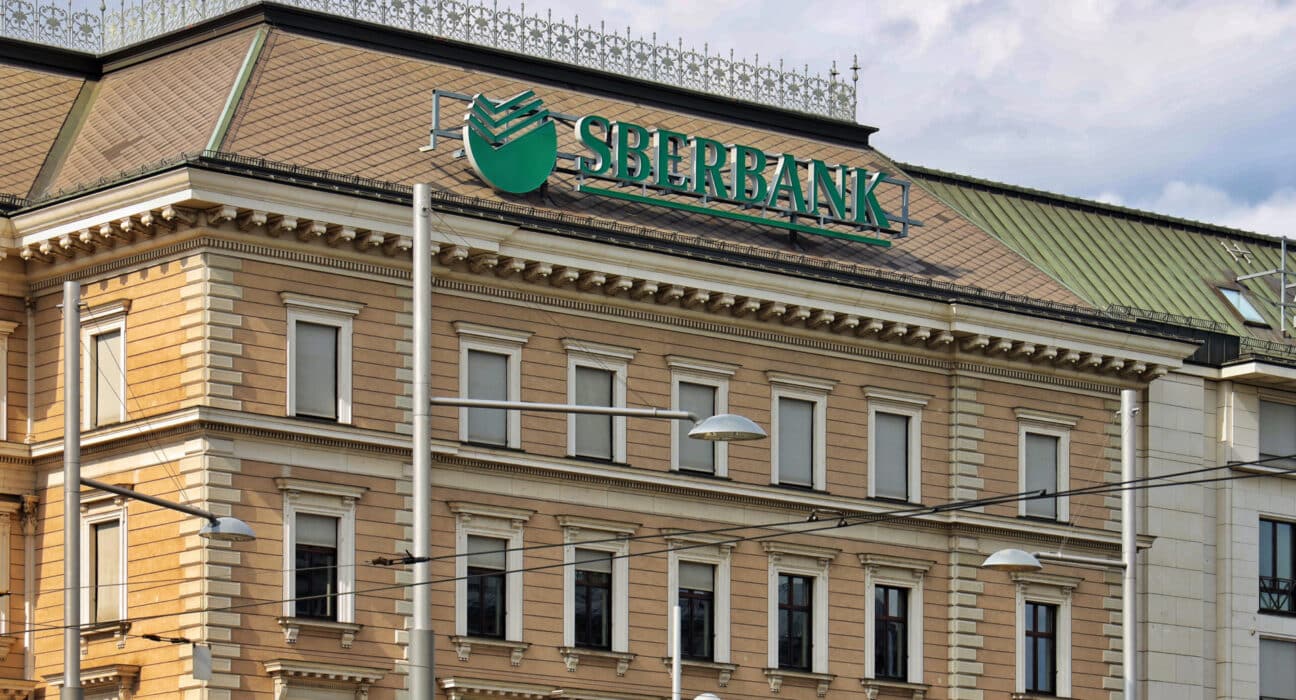The CEOs of Russia’s largest banks, Sberbank and VTB, have publicly criticized Bitcoin, labeling it as risky and likening it to “fake money.” While these sentiments reflect the conservative stance of Russia’s banking sector toward cryptocurrencies, they also underscore a broader shift toward central bank digital currencies (CBDCs). Meanwhile, Tinkoff CEO highlighted that the Russian Central Bank’s policies are preventing the bank from offering cryptocurrency trading services, adding to the ongoing debate over digital currencies in the country.
Sberbank and VTB: Giants of Russian Banking
1. Sberbank: A Leading Financial Institution
- Sberbank, led by Herman Gref, is Russia’s largest bank, holding a dominant position in the country’s financial market.
2. VTB: A Major Player
- VTB, the second-largest bank in Russia, is headed by Andrey Kostin and plays a significant role in shaping financial policy and innovation in the region.
Criticisms of Bitcoin from Sberbank and VTB
1. Herman Gref on Bitcoin Risks
- Gref labeled Bitcoin and other cryptocurrencies as “probably the riskiest type of investment,” grouping them with equity markets.
- He advised that traditional banking deposits, despite their low returns, are safer investment options due to minimal risk.
2. Andrey Kostin’s “Fake Money” Remarks
- Kostin dismissed Bitcoin as “fake money,” comparing its creation through mining to the practices of the Middle Ages.
- He expressed skepticism about the legitimacy of cryptocurrencies, describing them as inherently flawed.
Support for Central Bank Digital Currencies (CBDCs)
1. Confidence in CBDCs
- Both CEOs favor the development and implementation of CBDCs, believing they will eventually replace cryptocurrencies like Bitcoin.
- Kostin emphasized that CBDCs could provide a regulated and controlled alternative to private cryptocurrencies.
2. Addressing Initial Concerns
- While private banks initially feared that CBDCs would grant excessive power to the Bank of Russia, they now view the digital ruble as a cooperative effort.
- Kostin highlighted that CBDCs can be designed to ensure customer retention within private banks while central banks oversee issuance and control.
Tinkoff CEO on Crypto Trading Restrictions
1. Central Bank’s Role
- Tinkoff CEO Oliver Hughes noted that the Russian Central Bank’s restrictive policies are preventing the bank from offering cryptocurrency trading services.
- This adds to the ongoing tensions between financial institutions and the central bank regarding crypto adoption.
2. Growing Customer Demand
- Hughes acknowledged the increasing demand among Tinkoff’s customers for crypto trading options, but regulatory barriers make it challenging to meet this need.
The Broader Russian Stance on Cryptocurrencies
1. A Conservative Approach
- Russia’s financial institutions and regulators have consistently taken a cautious stance toward cryptocurrencies, emphasizing risks like volatility, fraud, and money laundering.
- The central bank has repeatedly voiced concerns about the impact of cryptocurrencies on financial stability.
2. The Role of the Supreme Court
- The Supreme Court of Russia previously overturned an RBI-like circular that restricted banks from servicing crypto-related businesses, but reluctance among private banks persists.
Contrasting Views on Bitcoin vs. CBDCs
| Aspect | Bitcoin | CBDCs |
|---|---|---|
| Perceived Risk | High volatility and speculative | Low, due to government backing |
| Control | Decentralized, user-controlled | Centralized, issued by governments |
| Use Case | Investment and alternative currency | National currency replacement |
| Adoption by Banks | Resisted by Russian banks | Supported as a regulated solution |
Implications for the Future of Finance in Russia
1. Push Toward CBDCs
- The preference for CBDCs over cryptocurrencies like Bitcoin suggests a regulated digital financial ecosystem in Russia’s future.
- The digital ruble could serve as a model for controlled digital currencies globally.
2. Limited Role for Cryptocurrencies
- With leading banks and regulators opposing Bitcoin, the space for private cryptocurrencies in Russia appears limited.
- This could stifle innovation and prevent the country from fully participating in the global crypto economy.
Challenges for Cryptocurrency in Russia
1. Regulatory Roadblocks
- Stringent policies from the central bank create significant barriers for businesses and investors in the crypto space.
2. Lack of Institutional Support
- The public criticism from major banks like Sberbank and VTB discourages widespread adoption of cryptocurrencies.
3. Public Perception
- The ongoing negative rhetoric could shape public opinion, leading to a lack of trust in cryptocurrencies among Russian citizens.
Conclusion
The sharp criticism of Bitcoin by Sberbank and VTB CEOs underscores the significant divide between Russia’s financial institutions and the global cryptocurrency movement. While private cryptocurrencies face resistance, the growing focus on CBDCs suggests a controlled, regulated approach to digital finance.
As Tinkoff’s CEO points out, demand for crypto trading remains strong, indicating a disconnect between customer needs and institutional policies. The future of digital currencies in Russia will depend on balancing innovation with regulation, creating an environment that fosters both trust and progress.
To learn more about the innovative startups shaping the future of the crypto industry, explore our article on latest news, where we delve into the most promising ventures and their potential to disrupt traditional industries.
Disclaimer: The information provided is not trading advice, Bitcoinworld.co.in holds no liability for any investments made based on the information provided on this page. We strongly recommend independent research and/or consultation with a qualified professional before making any investment decisions.




